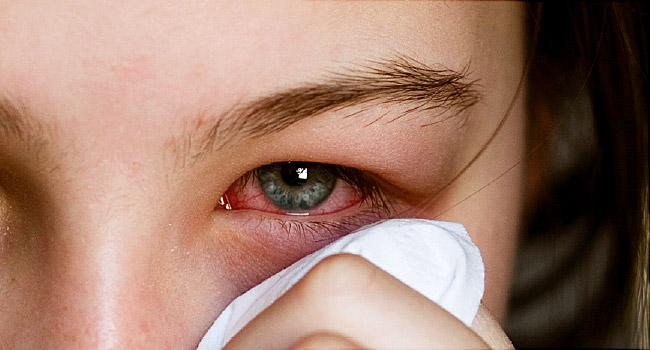‘Pink Eye’ Often a Symptom of COVID-19
WEDNESDAY, April 1, 2020 (HealthDay News) — Besides causing COVID-19, the new coronavirus can also lead to “pink eye,” and Chinese researchers say the virus may be spread by tears.
Of 38 patients with COVID-19, a dozen also had pink eye (conjunctivitis), a new study found. In two patients, the coronavirus was present in both nasal and eye fluids.
“Some COVID-19 patients have ocular symptoms, and maybe novel coronaviruses are present in the conjunctival secretions of patients with COVID-19,” said researcher Dr. Liang Liang of the ophthalmology department at China Three Gorges University in Yichang.
The conjunctiva is a thin, transparent layer of tissue that lines the inner eyelid and covers part of the white of the eye. Liang said the coronavirus may invade it in patients with severe COVID-19 pneumonia.
That means the virus can be spread if someone rubs an infected eye and then touches someone else — or during an eye examination, the study authors suggested.
The more severe a patient’s COVID-19 is, the more likely it is that he or she will also have pink eye, according to the report published online March 31 in JAMA Ophthalmology.
Given these findings, doctors and nurses treating patients with COVID-19 should wear protective glasses as well as other protective clothing, caps and gloves, Liang said.
Reacting to the research, a New York City eye doctor said people should take steps to prevent pink eye. That includes avoiding touching their eyes and face, and using glasses instead of contact lenses during the coronavirus outbreak.
“Although conjunctivitis is a rare manifestation of this disease, we should take all the necessary precautions to prevent conjunctivitis, including frequent hand-washing,” said Dr. Prachi Dua, an ophthalmologist at the Manhattan Eye, Ear and Throat Hospital.
“Patients and clinicians should be aware that COVID-19 can manifest with ocular redness, swelling and tearing,” she added. “These patients should seek appropriate care for proper diagnosis and prevention of transmission.”
Dr. Alfred Sommer, a professor of epidemiology and international health at Johns Hopkins Bloomberg School of Public Health in Baltimore, wrote an editorial that accompanied the study.





over the counter appetite suppressant https://overthecounter.pro/#